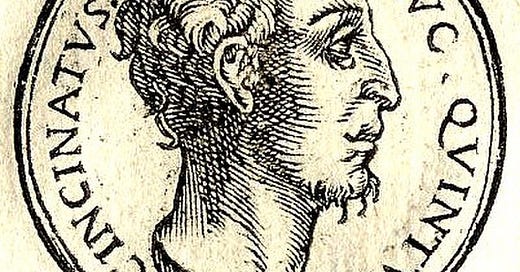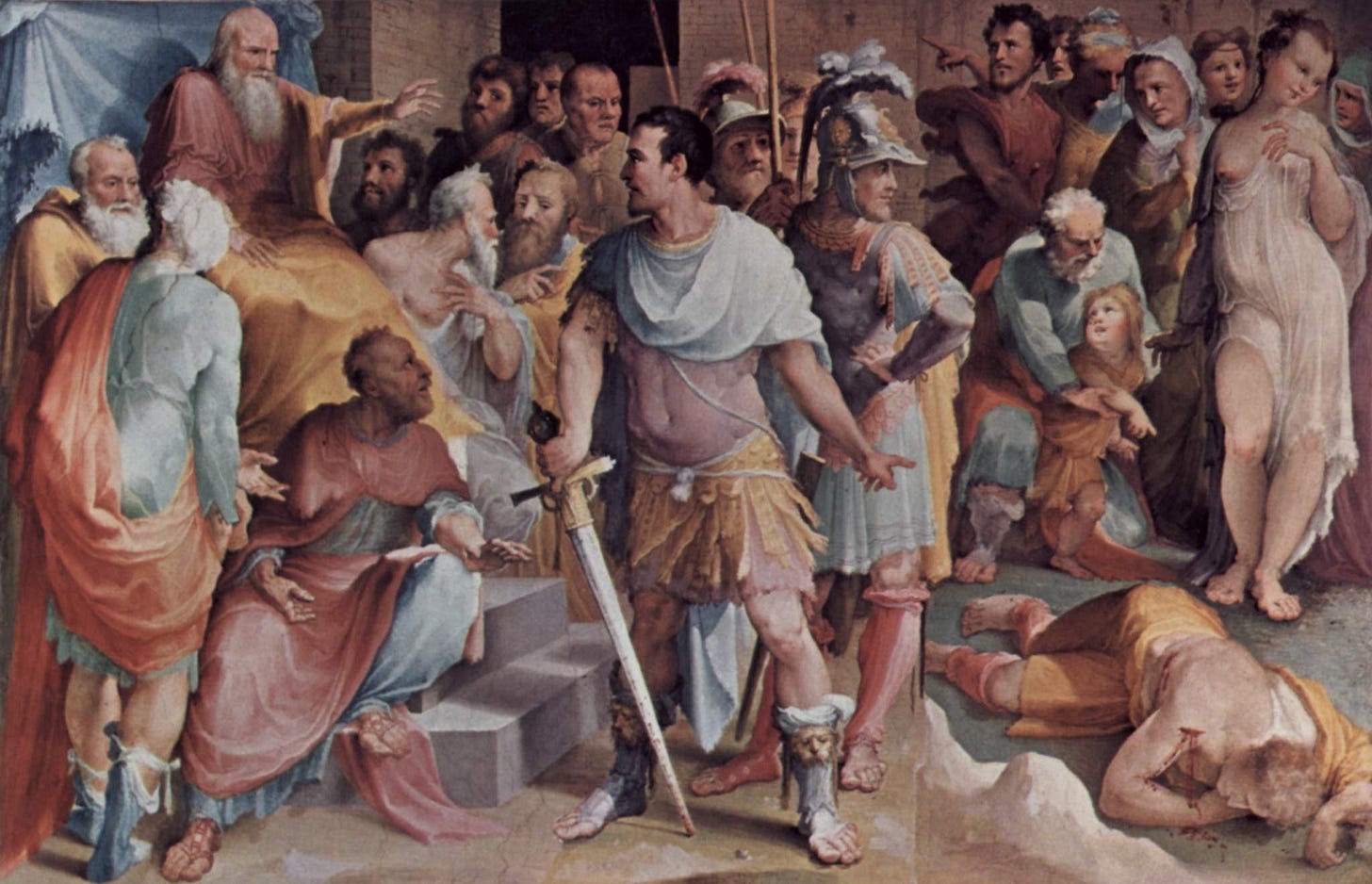How the Roman Republic Dealt with Demagogue Spurius Maelius
The history told here is meant to illuminate the difficulty of ridding a democracy of a militant demagogue—not to recommend the method adopted by the Roman Senate in 439 BCE
Demagogues are so mad for power and vengeance that often they never give up the fight. Under threat, some will burn Rome, so to speak, in the manner of a murder-suicide.
This is what Roman demagogue Spurius Maelius intended in the 5th century BCE. A rich citizen of the equestrian order, Maelius was either going to win the consulship of the republic, or he would gain the support of the people, by whatever means necessary, to install himself as king.
Defeated for consul, Maelius pursued the latter course in 439 BCE by exploiting a widespread famine that left average citizens hungry. Deceitful and divisive, he bought up as much corn and wheat as his great wealth permitted, fueling a shortage. Then he went on to fed only his followers, luring them away from the republic.
The government had no specific laws against such economic manipulation. But they knew the devious nature of Maelius, and they understood what his endgame was.
So, with the republic under menace of overthrow, they deployed the only instrument Rome constitutionally possessed to stop such a usurper. They voted into office a temporary dictator, Lucius Quinctius Cincinnatus, with limitless powers to act on behalf of the common good, no matter what it took.
The retired Cincinnatus was a trusted political and military leader known for his selfless service to the state. This was not the first time the Senate called upon him in this way. Decades earlier, Rome named Cincinnatus dictator to fend off an invasion by the Aequi.
“The Romans had a dictator,” British political historian Thomas Gordon writes, “a great and extraordinary magistrate, vested with an extraordinary power, as he was created on extraordinary exigencies; and his commission was limited only by the publick good, and consisted in a very short direction … To save the state.”
Gordon further explains that the seeming benevolence of Maelius in feeding the hungry was known by the Senate to be “an ambitious bribe to catch the hearts of the multitude, in order to seize their liberties.”
Once in power, Cincinnatus appointed a special counsel of sorts, a military man named Gaius Servilius Ahala, to call Maelius to account.
When the defiant demagogue refused to comply, Ahala, acting on orders of Cincinnatus, killed him.
After Maelius’ death, his house and property were seized and his wealth placed in the public treasury. As the Roman historian Livy describes the logic of the republic, the Senate made a lasting example of Maelius in order to deter future usurpers from abusing the trust of the people in order to topple the government.
“His act must be regarded as a portent quite as much as a crime,” Livy reports, “for that portent his blood was not sufficient expiation, those walls within which such madness had been conceived must be leveled to the ground, and his property, contaminated by the price of treason, confiscated to the State.”
So difficult was it in Roman days to purge the republic of a slippery demagogue like Spurius Maelius that the Senate resorted to an interim dictatorship and execution.
Today in the United States, we deplore political violence of any and all kinds. We live by the rule of law—pure and simple. In our peaceful and domesticated times, we hope that the rule of law—in New York, Georgia, and Washington, D.C.—will serve the purpose of sparing our democracy further insult and injury by Donald J. Trump, the first full-blown demagogue in our history to ascend to Oval Office.






Because a friend told me that I should do more to clarify my categorical nonviolent beliefs about demagogues and democracy, I changed the last paragraph of this piece from:
"In our own more peaceful and domesticated times, we hope that the constitutional rule of law—in New York, Georgia, and Washington, D.C.—will serve the same purpose in the case of Donald J. Trump, the first full-blown demagogue in our history to ascend to Oval Office."
To:
"Today in the United States, we deplore political violence of any and all kinds. We live by the rule of law—pure and simple. In our peaceful and domesticated times, we hope that the rule of law—in New York, Georgia, and Washington, D.C.—will serve the purpose of sparing our democracy further insult and injury by Donald J. Trump, the first full-blown demagogue in our history to ascend to Oval Office."
This is a story that has a lot do with the world we live in today. Although the demagogue is not the same, and we can not appoint a dictator in the United States to deal with it, the moral still stands; an example must be made. We must do as they did and make sure that there is a strong example for future generations. A strong example of a demagogue and how he/she was dealt with.